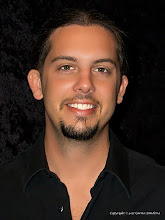Thursday, March 31, 2011
The most important lesson any up and coming audio engineer should know.
Now, I can get a bit more back on topic. I hope everyone is doing great out there, following your dreams and all that jazz. I was following mine the other day and one thing that continuously arises is this concept of a PLN (personal learning network). I, like many of you now didn’t know what a PLN was. It basically is the handful of websites, magazines, TV shows, or wherever you stay up to date on the topics that interest you. This also relates to us on a professional level, keeping our finger on the pulse of our respective industries. One site I frequent is www.mixonline.com, the online version of Mix Magazine. Mix is a professional publication focused on audio engineers and the like. There are always great interviews from legendary producers and engineers and they talk very candidly about their careers and tips for younger upstarts. I found one in particular by George Massenburg, legendary equipment designer and manufacturer, engineer, producer and educator. Mr. Massenburg is an advocate of innovation and the development of the very tools we engineers use to help usher the industry into the future. He greatly pushed the “use your ears” message in more ways than one. As he sees it, the gap present that separates the quality recording from the past and the newer volume war fodder is education. After all, how do you train an audio engineer? What is it an audio engineer does anyway? Well, first I have to very respectfully agree with Mr.Massenburg. I think listening in this day is a lost art. You don’t see young engineers going out to listen to GOOD musicians in different acoustical environments to receive that crucial audio training. Watching and listening are the two most important things a young, up and coming audio engineer needs to master… yes, even more important than signal flow. Signal flow is very important so let me just go ahead and get that out there, I don’t advocate ditching flow knowledge for being a wall flower. However, some of the most important lessons that can be learned go by in a flash and are lost forever. Critical listening in an appropriate, controlled acoustical space is the exact prescription an engineers ears need to sustain a long and prosperous career. Remember all of you engineers out there, our job is to capture audible brilliance from a talented artist, analyze and treat the audio so a listener ten years later from a different part of the world can audibly travel back in time and sit right in front of that artist, enjoying that piece of music. We really shouldn’t get in the way.
Subscribe to:
Post Comments (Atom)
Subscribe Now
Subscribe via email
Who is Mike Lancaster?

- Mike Lancaster
- I am a drummer and percussionist with twenty-three years experience and a audio engineer. Now I am finishing my Graduate studies for Entertainment Business. I have a Bachelor's Degree in Recording Arts from Full Sail University and I look forward to what life has in store for me in the next years.
What is The Summing Amp?
The Summing Amp is an interactive blog especially for audio engineers and audiophiles in general. I hope everyone who visits will receive something from the blog, but it is geared for professionals in the audio and entertainment industries. I wish to "sum" the information I have in my person and find in my studies onto one stream for my followers. I also wish to have my followers interact with me and the other followers, sharing information and tricks of the trade. I wish most of all to reach the best and the brightest of the industry and share my love for recording, performing, and producing entertainment of many different mediums.


No comments:
Post a Comment